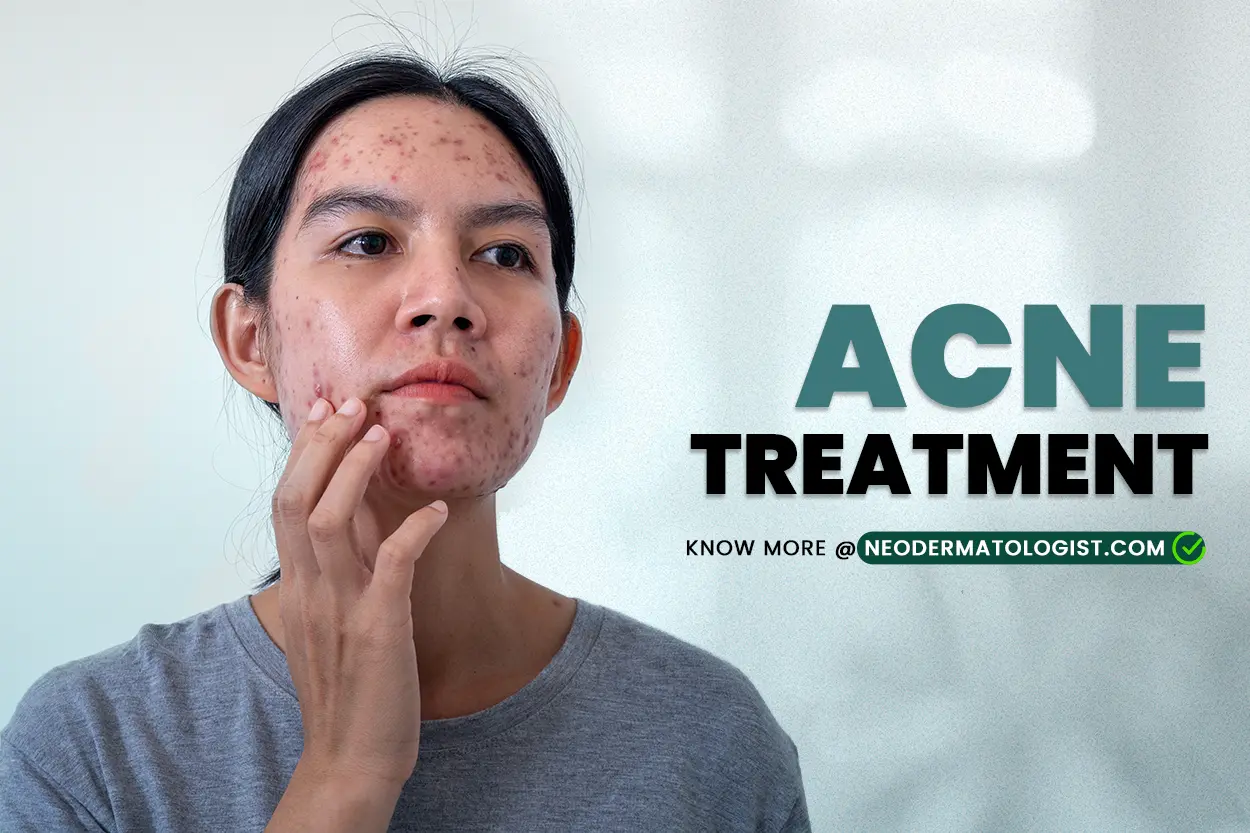
How to Treat Pimples Permanently: Types, Treatments & Procedures - Everything You Need to Know
Introduction
Wondering how to treat pimples permanently or which treatment actually works for your skin type?
Looking for the best online dermatology consultation for acne from the comfort of your home?
These are some of the most common questions patients ask - and this blog will guide you with clear, dermatologist-backed answers.
Hello all, I am Dr. Ruchir Shah, a Dermatologist with extensive experience in treating acne patients through tele-dermatology and online dermatologist consultations. Over the years, I have helped thousands of individuals struggling with persistent acne and guided them with effective, personalized pimple treatment plans.
If you are:
- Experiencing frequent acne breakouts and searching for “how to treat pimples permanently.”
- Looking for the best online pimple treatment by a dermatologist
- Struggling with face pimples and want to know which cream can remove acne quickly and safely
- Trying to treat acne spots, dark marks, or post-inflammatory pigmentation at home
- Searching for a trusted dermatologist without needing to visit a clinic physically
Then Neodermatologist.com - India’s Best Online Dermatology Consultation Platform is the right place for you.
Our certified dermatologists assess your skin type, understand the severity of your acne, and guide you with the correct treatment - whether that includes topical creams or oral medicines. Every treatment plan is customized, safe, and focused on providing long-term results.
Understanding Acne - Know How To Treat Pimples Quickly
Acne - it's a word that strikes fear and frustration into the hearts of many, regardless of age or gender. From teenage breakouts to adult onset, this common skin condition can wreak havoc on self-esteem and confidence. But fear not, for in this comprehensive guide, we'll delve into the depths of acne, unraveling its mysteries and providing actionable strategies for pimple treatment shared here by a doctor.
At its core, acne is a skin condition that occurs when hair follicles become clogged with oil and dead skin cells. This leads to the formation of pimples, blackheads, and whiteheads, which can appear on the face, neck, chest, back, and shoulders. Several factors contribute to the development of acne, including hormonal changes, genetics, diet, stress, and skincare products. As a dermatologist, when deciding on pimple treatment, it is essential to consider hormonal factors, diet, genetic factors, and stress.
If you are wondering how to treat pimples permanently, it’s important to understand that the right approach depends on severity and skin type. Sometimes, quick remedies can help control breakouts, but long-lasting results usually require consultation with a pimple skin doctor or a pimple skin specialist who can provide the right medical guidance.
Types of Acne
Acne can appear in different forms, and understanding these types helps in deciding the right treatment approach. The most common types include:
- Whiteheads - Closed, clogged pores that appear as small white bumps on the skin's surface.
- Blackheads - Open clogged pores that darken due to exposure to air, resulting in black spots.
- Papules - Inflamed lesions that appear as small, red bumps on the skin.
- Pustules - Pimples filled with pus, characterized by a white or yellow center surrounded by redness.
- Nodules - Large, painful lumps beneath the skin's surface caused by the buildup of bacteria and oil.
- Cysts - Deep, pus-filled lesions that can cause scarring and require medical intervention.
These are just the basics of acne types. To explore them in detail and understand which type of acne you may have, click here to read our full guide on Types of Pimples (Zits) and How to Treat Them - Best Treatment From a Dermatologist.
Pimple Treatment Options
The good news is that pimples are treatable, and several effective options are available to manage and control breakouts. The most common approaches include:
- Topical Treatments - Creams, gels, and lotions with ingredients like benzoyl peroxide, salicylic acid, retinoids, or antibiotics that help unclog pores, reduce inflammation, and kill acne-causing bacteria.
- Oral Medications - For moderate to severe cases, dermatologists may prescribe antibiotics, hormonal medicines, or isotretinoin (Accutane) to target pimples from within.
These are just some of the primary options. If you want to know more about each treatment method, medicines, and detailed guidance, click here to read our full blog on Pimple Treatment Options - How To Remove Pimples and Marks at Home.
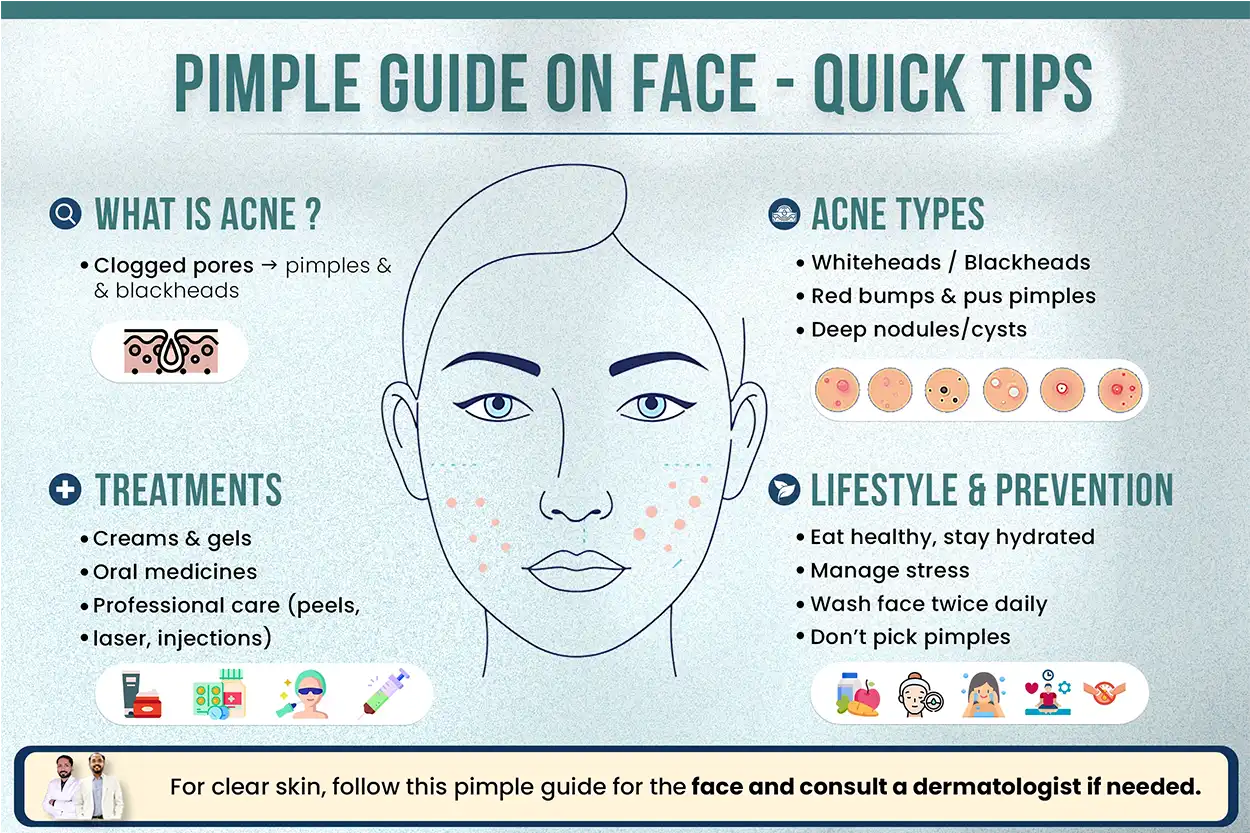
For patients who want faster results or who suffer from severe acne and scars, dermatologists often recommend professional procedures. These pimples or acne treatments are carried out under medical supervision by a dermatologist and are tailored to the type and severity of acne. Common procedures include:
- Chemical Peels - Special solutions that exfoliate the skin deeply, removing dead cells and reducing blackheads, whiteheads, and mild scarring.
- Microdermabrasion - A controlled exfoliation process that smooths skin texture and lightens pimple marks.
- Laser Therapy - Helps in reducing oil production, killing acne-causing bacteria, and stimulating collagen for scar healing.
- Corticosteroid Injections - Used for large, painful nodules or cysts to quickly reduce inflammation and discomfort.
These procedures are especially useful when patients ask how to treat pimples quickly or want long-lasting results without recurrence.
Consulting a dermatologist for acne scar removal or any type of pimples ensures personalized treatment options, including medical therapies and advanced procedures, to treat pimples permanently and improve skin texture safely.
Lifestyle Changes
Even though medicines are important, lifestyle changes play a huge role in how to treat pimples permanently. Many patients overlook the fact that everyday habits contribute to frequent breakouts. Some essential changes include:
- Balanced Diet - A diet rich in fruits, vegetables, whole grains, and lean proteins reduces flare-ups. Pimple-Causing Foods: Minimize sugary foods, excess dairy, and oily items that often trigger acne.
- Hydration - Drinking enough water flushes out toxins and helps keep skin clear.
- Stress Management - Stress hormones increase oil production, which can worsen acne. Practices like yoga, meditation, or even regular exercise can reduce breakouts.
- Skincare Habits - Gentle cleansing and using dermatologist-approved products prevent irritation. Avoid harsh scrubbing, which can damage skin and worsen pimples.
- Sun Protection - While mild sun exposure may temporarily dry pimples, excessive exposure worsens inflammation and causes pigmentation. Always use a non-comedogenic sunscreen.
Dermatologists often emphasize that these lifestyle modifications, when followed consistently, support any medical or procedural pimple treatment by a doctor.
If stress is triggering your breakouts, you can get professional guidance and online stress-related pimples or acne treatment from our expert dermatologists. Click on the link given to know : Can stress really cause pimples?
Home Remedies
Some people prefer natural solutions and wonder if treatment of pimples at home can be effective. While home remedies are not a replacement for medical care, they may help mild cases or complement prescribed treatment. Common options include:
- Tea Tree Oil - Known for its antibacterial properties, it helps reduce redness and swelling.
- Honey and Cinnamon Masks - Natural anti-inflammatory agents that soothe the skin.
- Apple Cider Vinegar - Balances skin pH and reduces acne-causing bacteria when used as a diluted toner.
- Green Tea Compresses - Rich in antioxidants that calm inflammation and redness.
It is important to use these remedies cautiously and consult a pimple skin doctor if symptoms worsen.
Prevention
When it comes to pimples, prevention is as important as treatment. Following simple, consistent habits can reduce breakouts and help maintain clear skin. Some dermatologist-approved prevention tips include:
- Cleansing - Wash your face twice daily with a mild, non-irritating cleanser to remove dirt, excess oil, and impurities.
- Moisturizing - Hydrate with a non-comedogenic moisturizer that won’t clog pores.
- Exfoliation - Gentle exfoliation once or twice a week removes dead skin cells. Avoid over-exfoliation, which can irritate the skin.
- Hands Off - Never pick, squeeze, or scratch pimples. This spreads bacteria, delays healing, and increases scarring risk.
- Personal Hygiene - Change pillowcases regularly, clean mobile screens, and avoid sharing makeup products to reduce bacterial contamination.
- Routine Dermatologist Checkups - Regular follow-ups with a pimple skin specialist help in adjusting treatments and preventing relapses.
If you’re wondering how to treat pimples permanently, prevention combined with proper treatment ensures long-term clear skin.
When Should You See a Dermatologist
While mild pimples can sometimes be managed with home remedies or over-the-counter treatments, it’s important to consult a dermatologist when:
- Your pimples are persistent or recurring despite home care.
- You notice severe acne with cysts, nodules, or painful lesions.
- Breakouts are causing scarring or hyperpigmentation.
- Acne is affecting your confidence or daily life.
- You want personalized advice for how to treat pimples permanently.
Seeing a qualified pimple skin doctor early can prevent worsening and help you get the most effective treatment.
Expert Online Dermatology Services
We have a team of experienced dermatologists who specialize not only in diagnosing acne and pimples but also in providing effective treatment for pimples on the face and other areas of the body. Your online dermatologist for pimples treatment will recommend medicines and procedures best suited for you, considering factors such as acne type, severity, and skin sensitivity.
If you are a new patient, you can take advantage of our free photographic consultation for your acne using the coupon code and receive a customized prescription from our dermatologists online.
If you’re interested in other online dermatologist skin services, explore our full range of online dermatologist consultations, including:
- General Skin Consultation
- Online Hair Loss Treatment
- Inner Parts Itching Treatment
- Ringworm Treatment By a Specialist
- Vitiligo Treatment
- Scabies Treatment
- Hives & Urticaria Treatment
- Psoriasis Treatment
Try NeoDermatologist’s Online Services
- Free Photographic Consultation - Upload your acne photos and receive a customized prescription without needing a video call.
- Video Consultation - Speak directly with a dermatologist to discuss your symptoms, food habits, and treatment needs.
- Personalized Diet & Treatment Plans - Our experts can help you create a skin-friendly diet plan and recommend the right treatment based on how your body reacts to different foods.
- Instant Chat with SkinMate - Need quick help? Start a chat with our Skinmate - AI-powered Dermatology Nurse on WhatsApp for answers about acne, food triggers, and treatments - fast and hassle-free.
Start a WhatsApp chat with SkinMate and use Code: FPCND100 to get a free online dermatologist consultation applicable for photo consultation only for acne or pimples.
Conclusion
Acne or pimples may be common, but they don’t have to rule your life. By understanding the causes and implementing effective pimple treatment and prevention strategies, you can take control of your skin and regain your confidence.
Remember, everyone’s skin is unique. Don’t hesitate to seek professional guidance from a pimple skin specialist to develop a personalized treatment plan. This may include topical creams, oral medicines, or professional procedures tailored to your skin type and acne severity.
With patience, consistency, and proper care, you can achieve clearer, healthier skin and say goodbye to acne for good.
Thank you.
M.B., D.V.D. | Registration No.: G-41460
A dermatologist specializing in tele-dermatology, offering expert care for skin, hair, and nail concerns. With extensive clinical experience, provides effective treatments for acne, hair fall, eczema, vitiligo, hives, scalp issues, ringworm, fungal infections, and more - all accessible through convenient online consultations.
 Hin
Hin En
En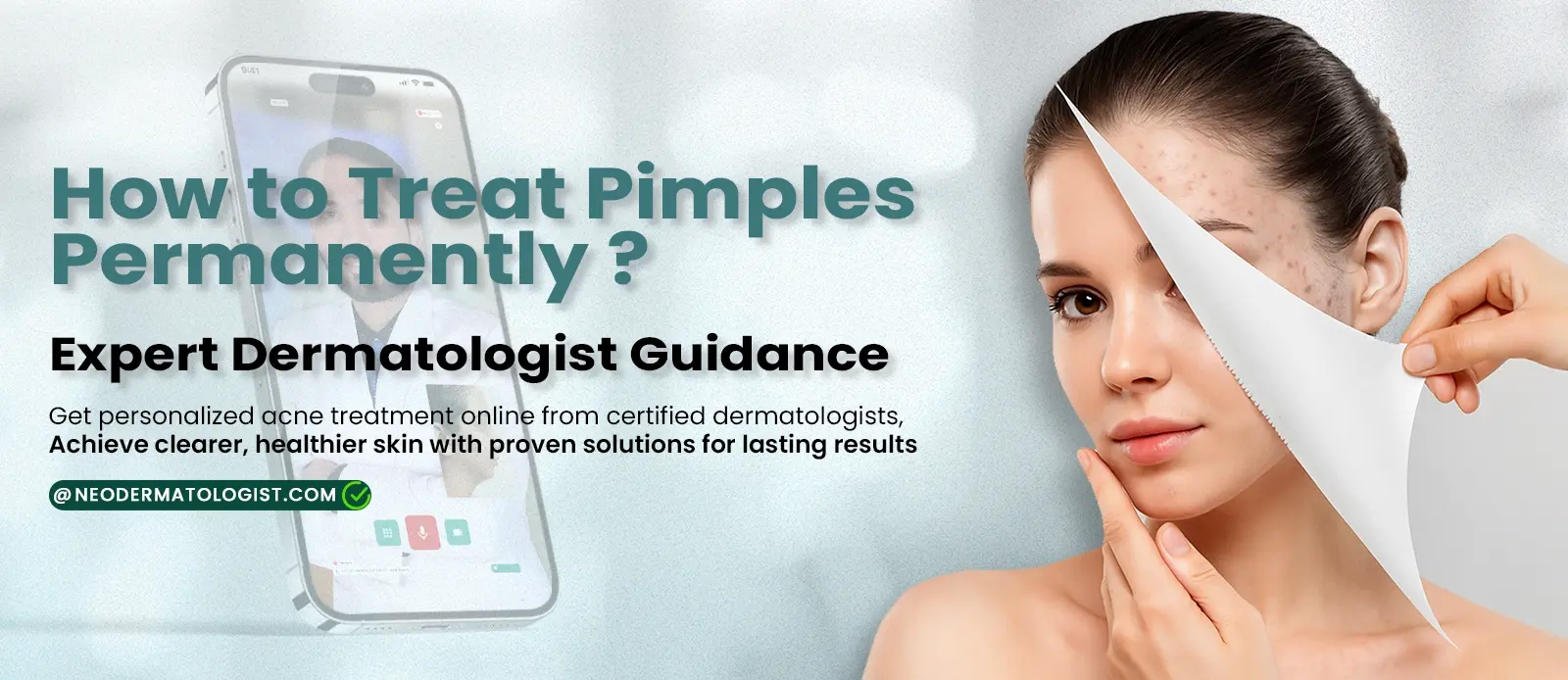
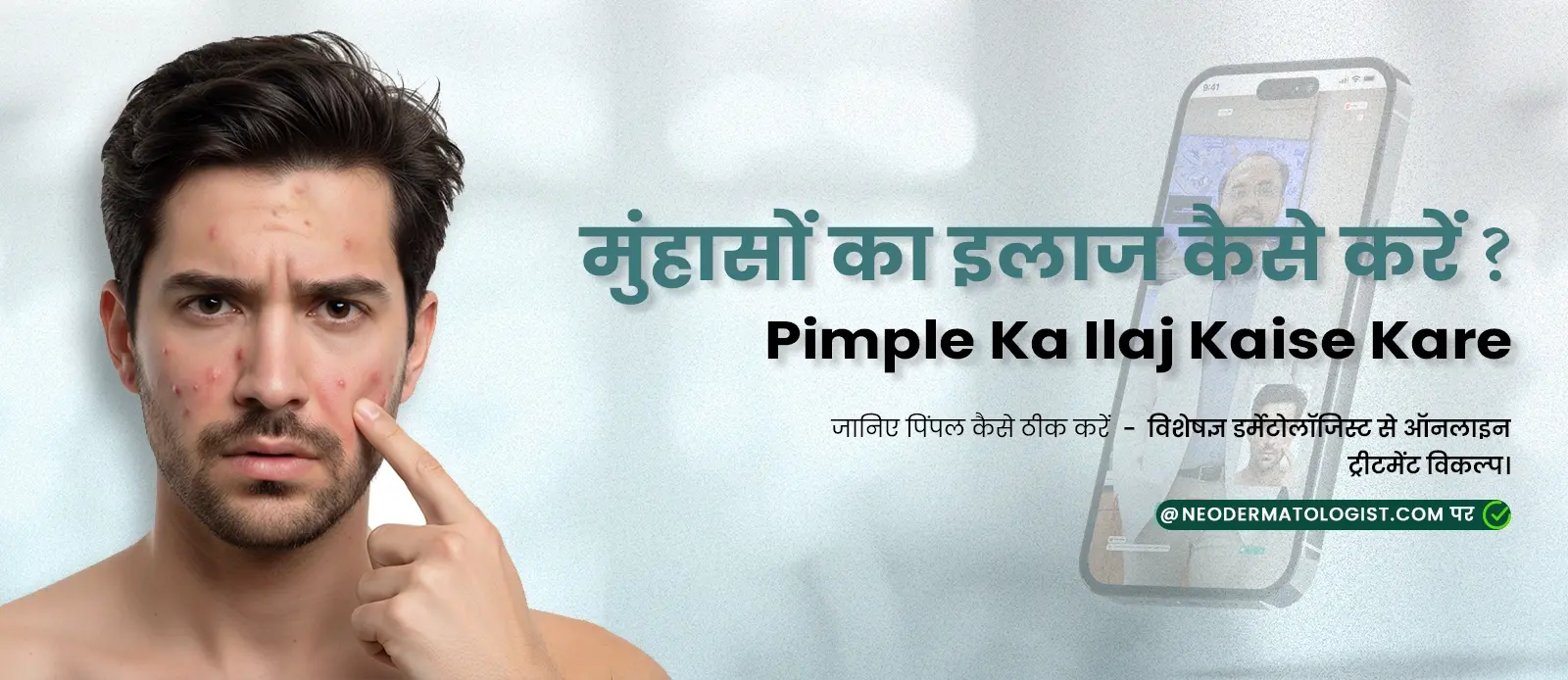
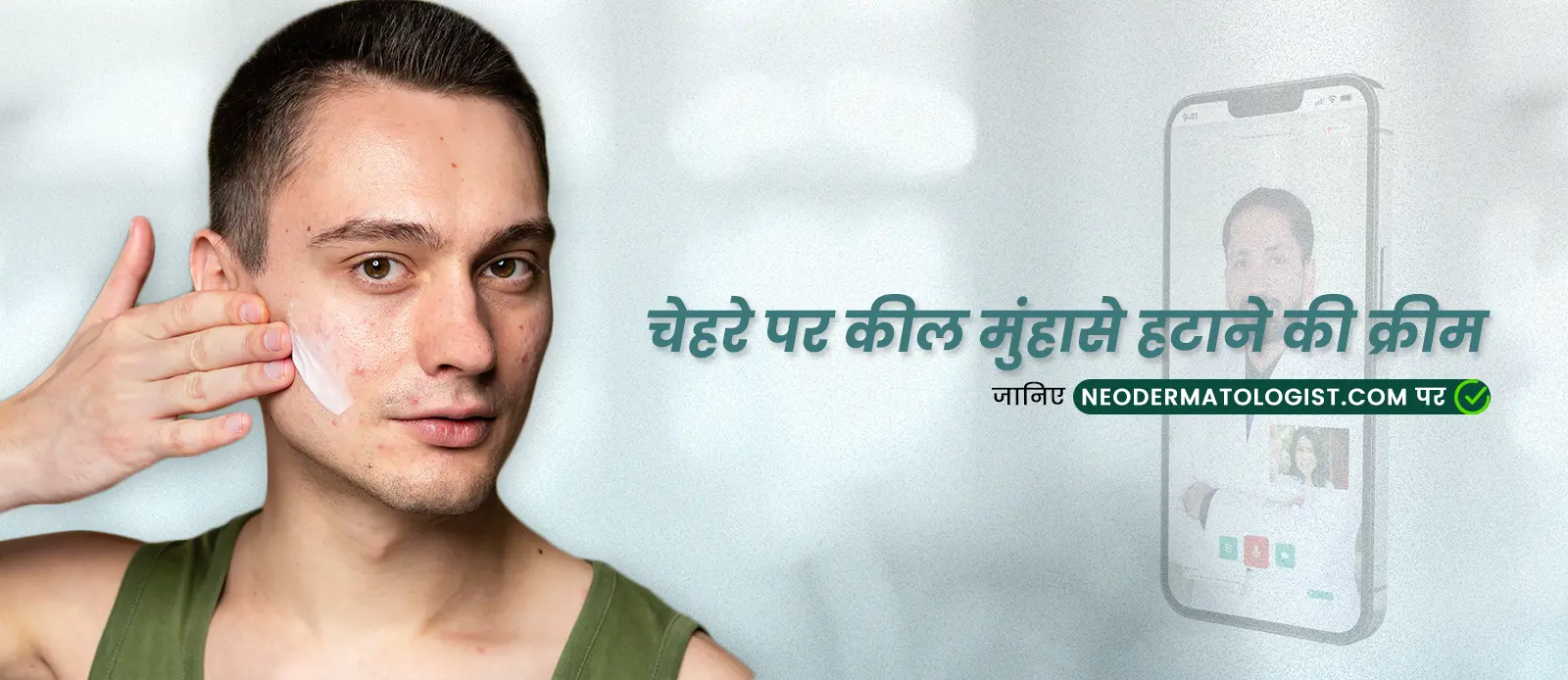

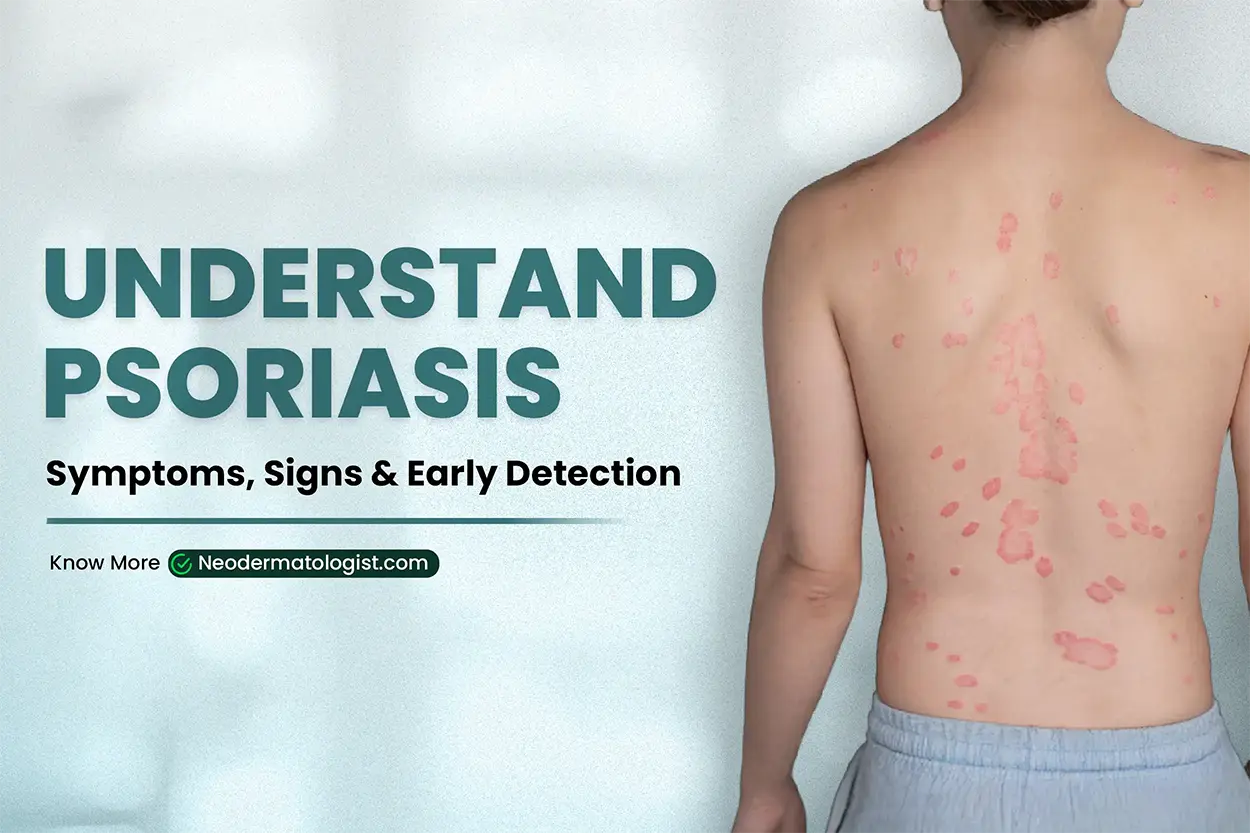
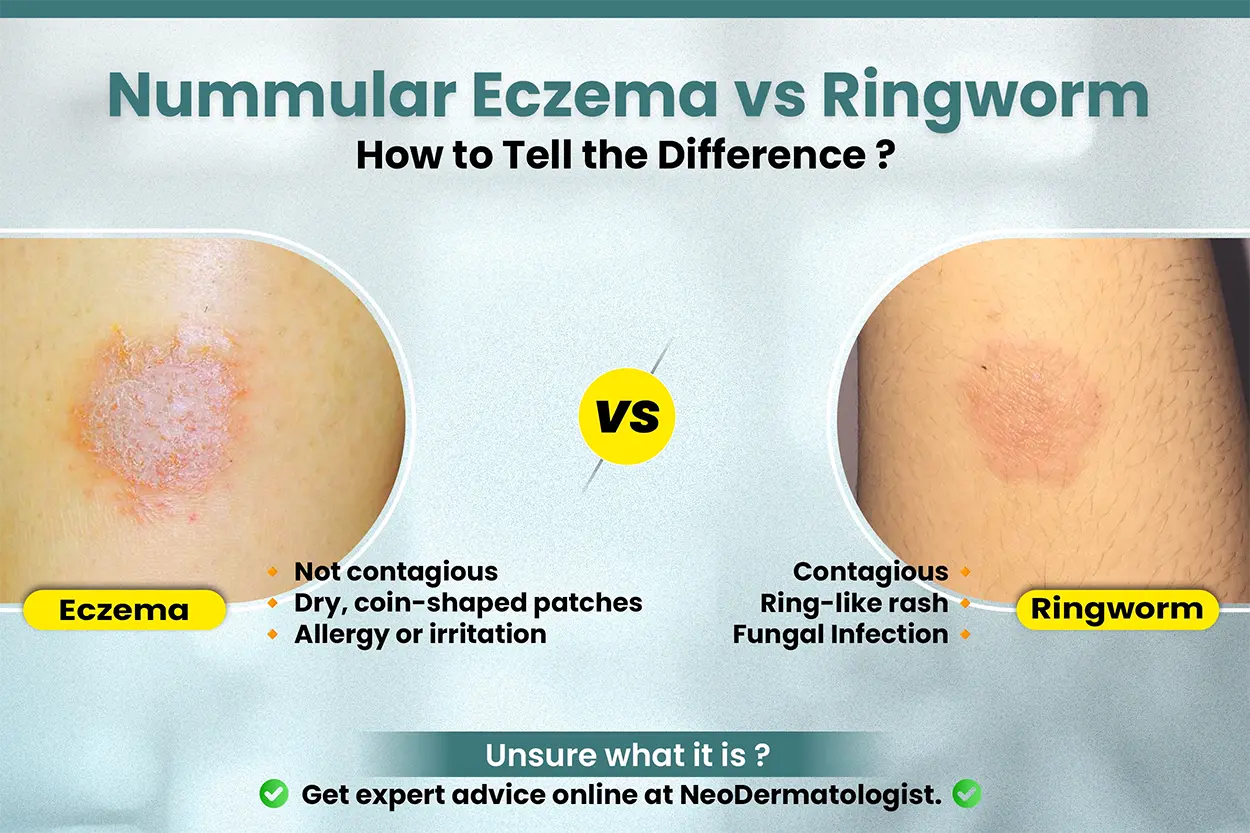

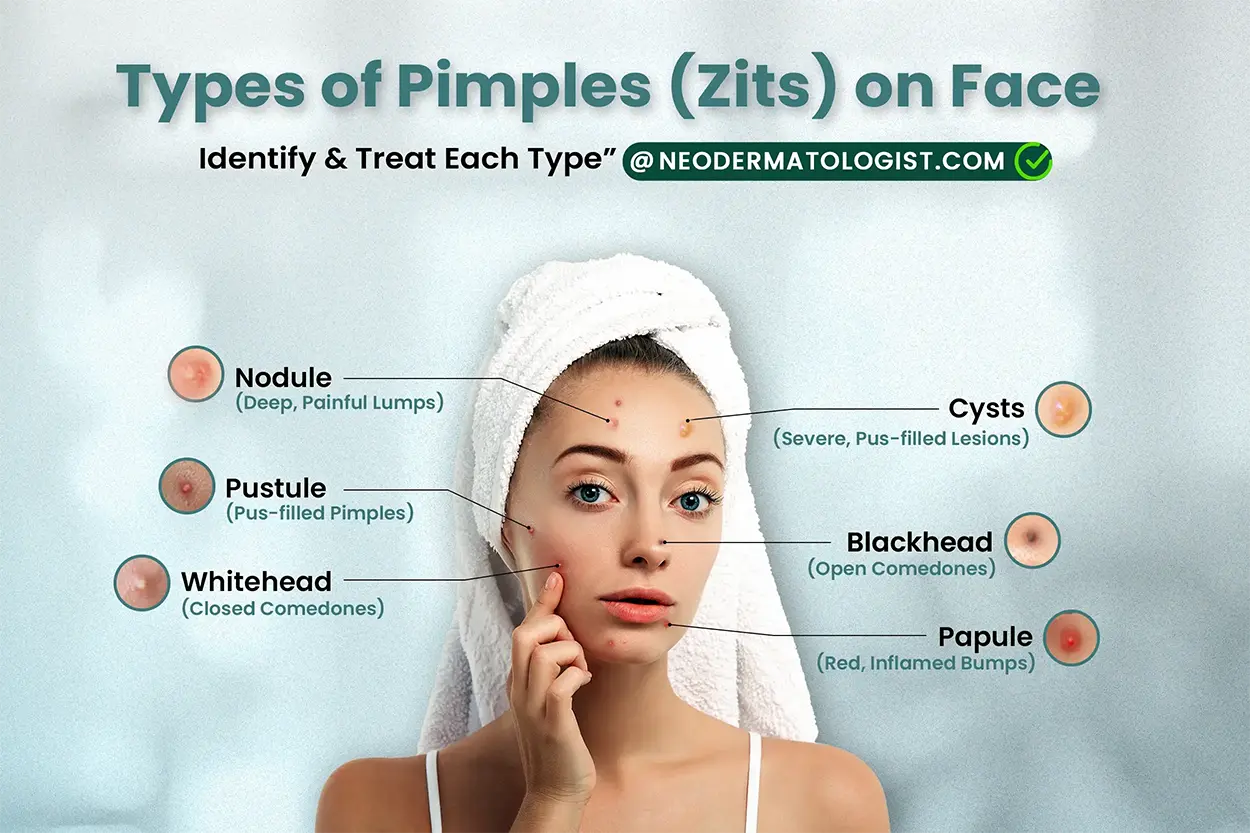
















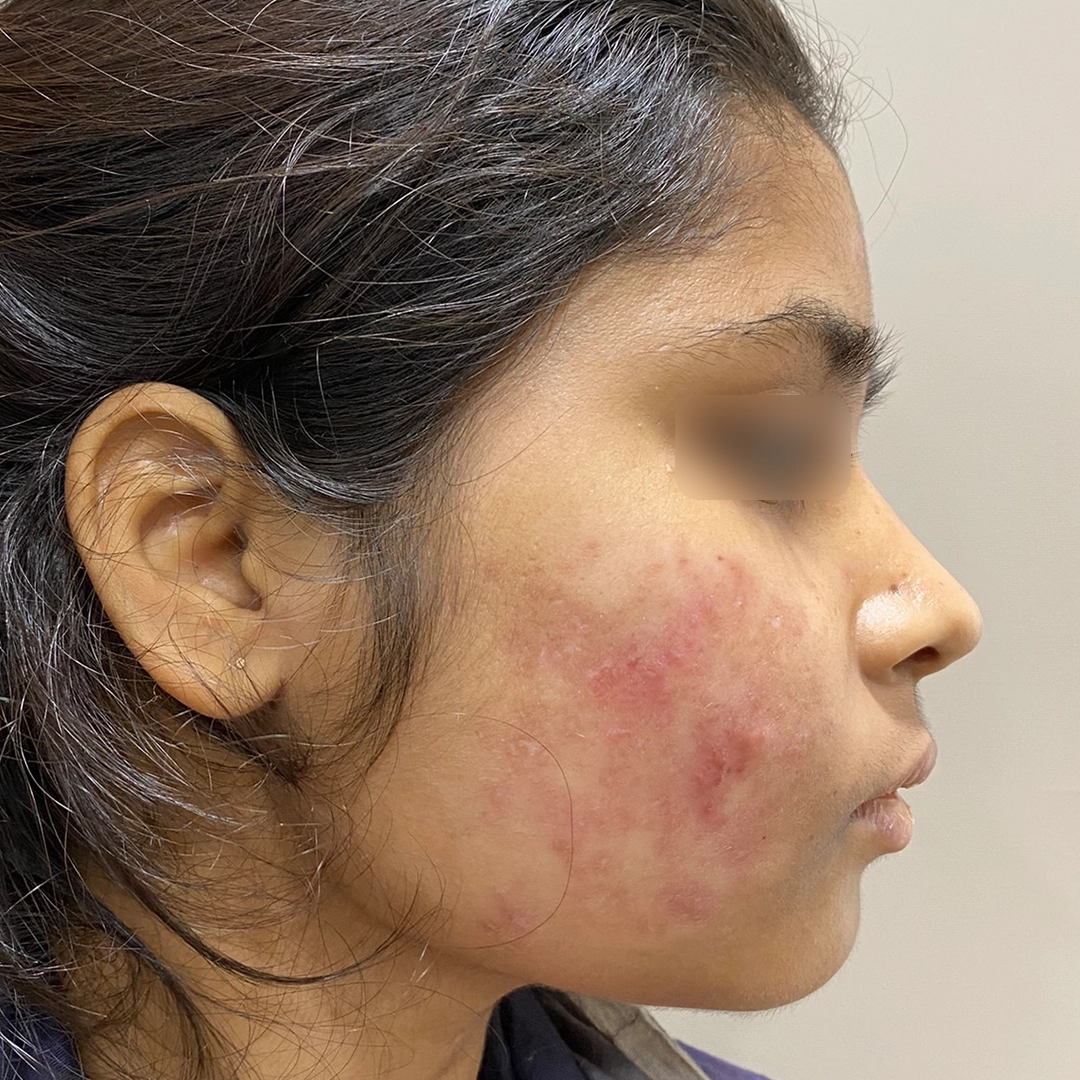
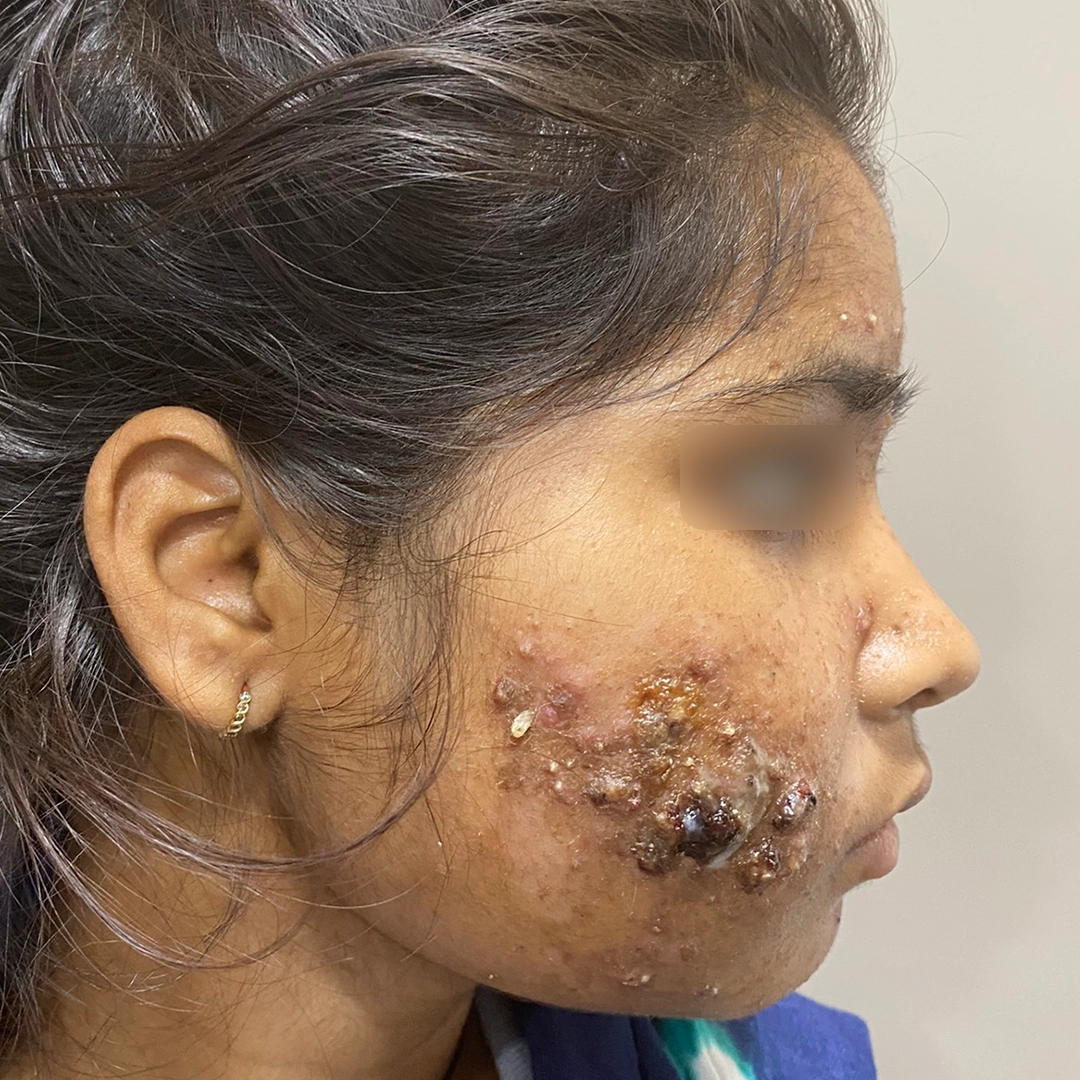



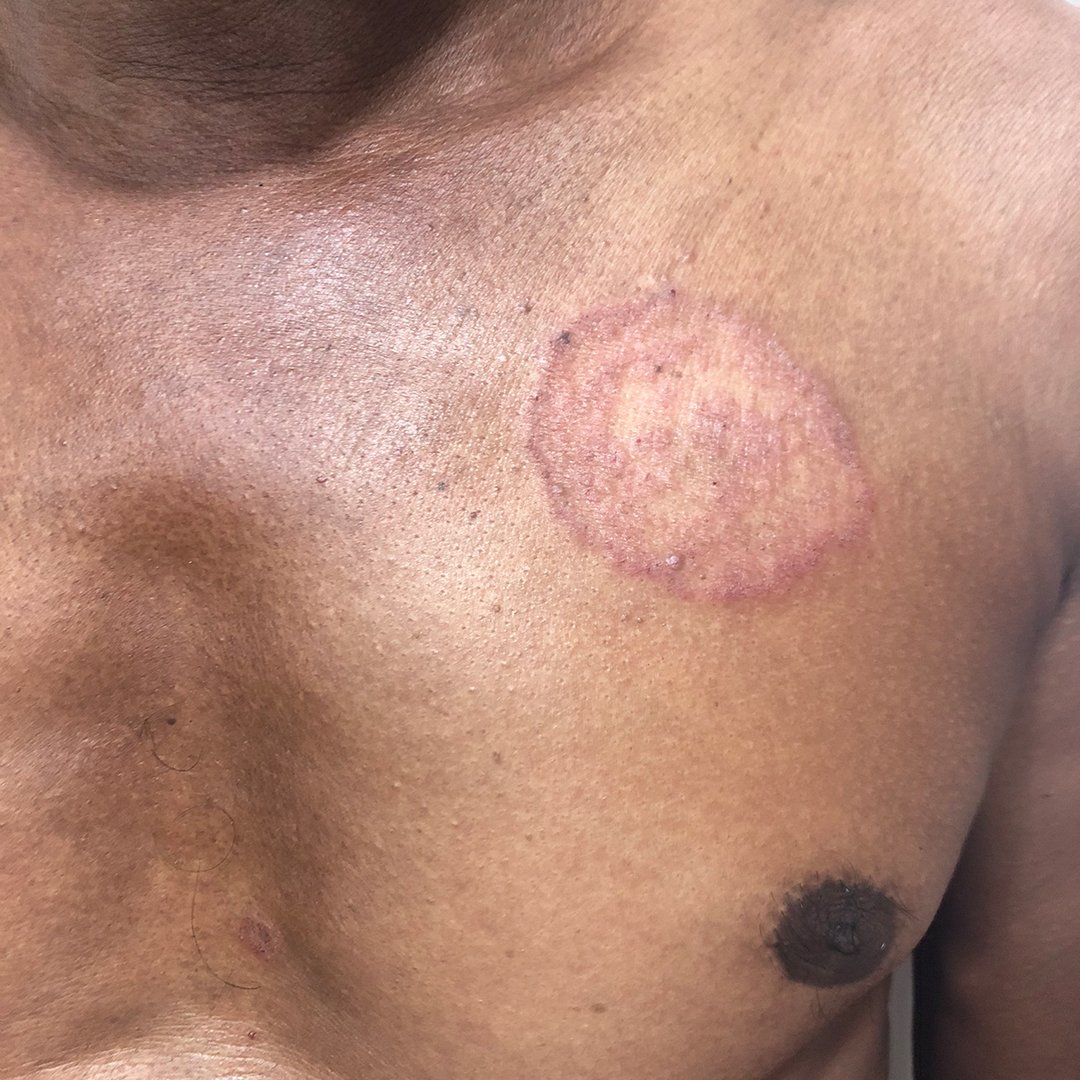
Comments
Nisha Thakur
This article explains pimple treatment in a very clear and practical way. Understanding the different types of pimples and their specific treatments really helps in choosing the right approach. Permanent solutions often need a mix of proper skincare, lifestyle changes, and dermatologist-guided procedures - and this blog covers all of it beautifully. Great information for anyone struggling with recurring acne!
नमिता वर्मा
यह ब्लॉग बहुत ही जानकारीपूर्ण है। मुँहासों के कारण और उनका इलाज इतने सरल शब्दों में समझाया गया है कि किसी को भी समझने में दिक्कत नहीं होगी। धन्यवाद NeoDermatologist टीम
Neha Rathod
This blog by Dr. Ruchir Shah is incredibly informative! I really appreciated how clearly the different types of acne were explained, along with the various treatment options. It’s helpful to know that pimples aren’t all the same and require specific care. Thank you for shedding light on such a common but often misunderstood skin issue.
Post a comment